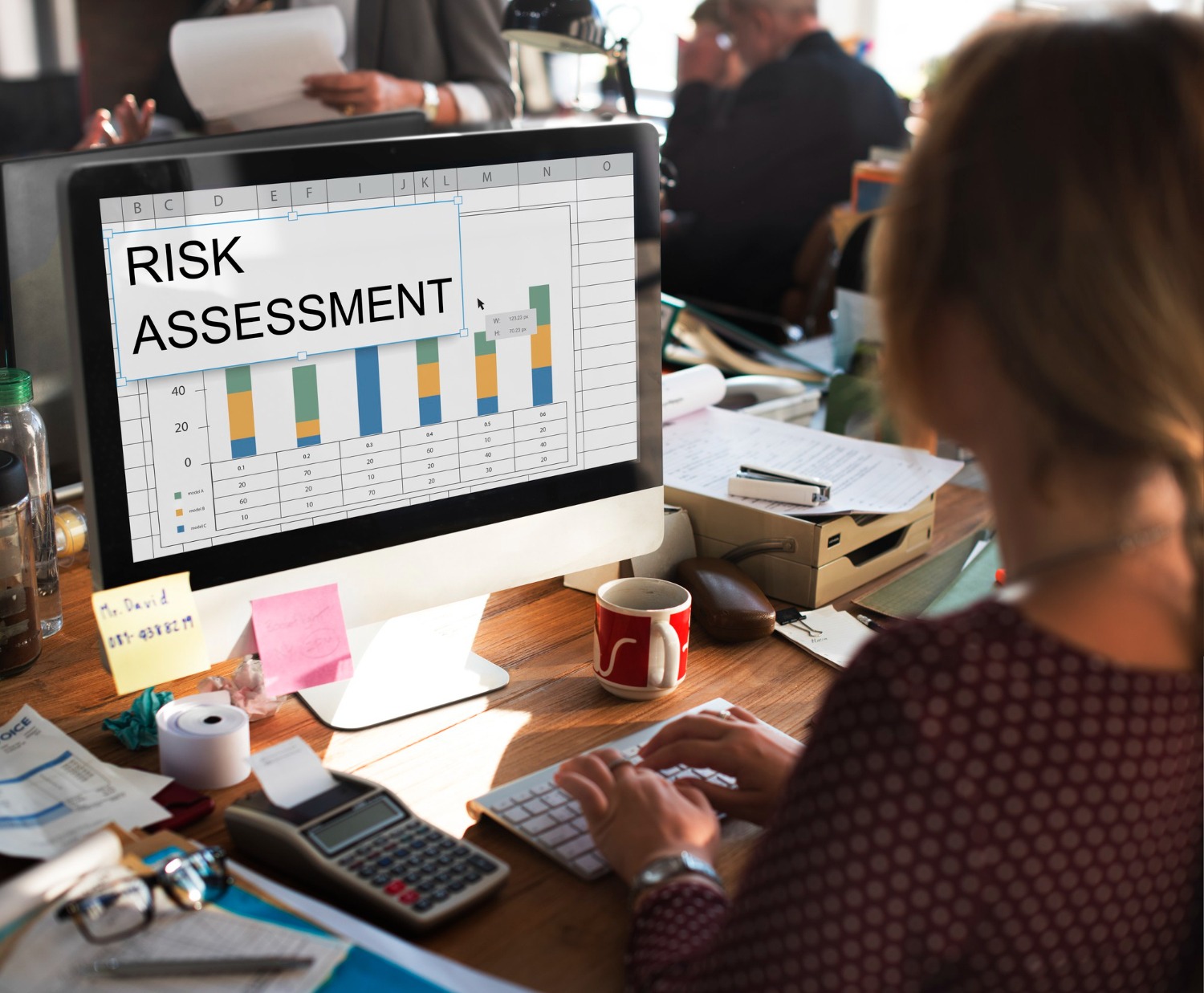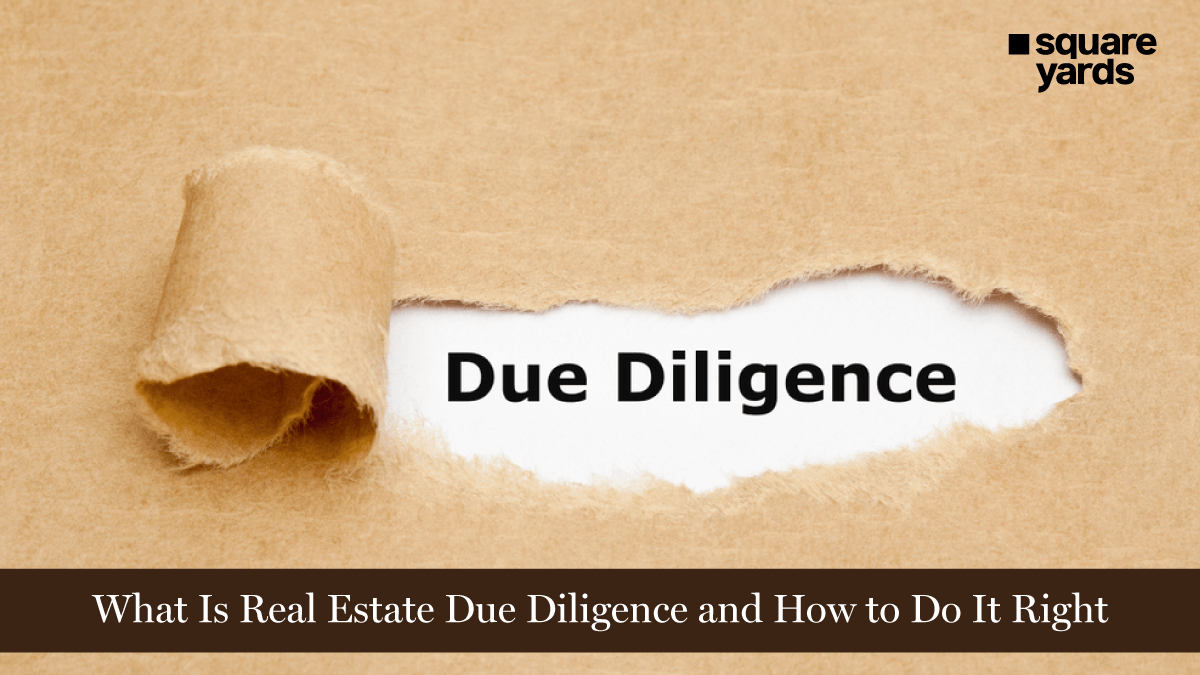Investing your hard-earned money is exciting, but it’s also risky. Losing it all to a bad deal can be devastating. That’s where due diligence comes in. It’s your financial safety net, your investigative tool to separate the gold from the fool’s gold. Think of it as hiring a detective to protect your wallet. This guide will equip you with the sleuthing skills to uncover hidden problems and make smarter investment choices. Let’s dive in!
What is Due Diligence?

Due diligence is detective work for your investments. It’s the meticulous process of investigating and verifying information about an investment opportunity before committing your hard-earned money. Think of it as a thorough background check on a potential business partner.
Whether you’re considering buying a stock, investing in a startup, or purchasing a property, due diligence is crucial. It involves digging deep into the numbers, the management team, the market, and any potential risks. You’re not just looking for red flags but also for opportunities and the overall health of the investment.
By conducting due diligence, you’re aiming to make informed decisions. You’re reducing the chances of falling for scams, overpaying, or investing in something that doesn’t align with your financial goals. It’s a time-consuming process, but the potential rewards – a sound investment and peace of mind – are well worth the effort.
Remember, due diligence isn’t about finding perfection but understanding the risks and rewards and making a calculated decision.
Importance of Due Diligence
Get to why Due Diligence matters in a few simple points below:
- Mitigate Risk: Uncovering potential pitfalls before you invest can save you from significant losses.
- Informed Decisions: Deep dive into the investment and make educated choices, not impulsive ones.
- Build Confidence: Understanding the investment inside and out boosts your trust in the decision.
- Protect Your Investment: Identify red flags and avoid scams or fraudulent schemes.
- Negotiation Power: Armed with knowledge, you can negotiate better terms.
- Long-Term Success: Due diligence is the foundation for building a strong investment portfolio.
- Peace of Mind: Knowing you’ve done your homework brings tranquillity to your investment journey.
Potential Risks Without Due Diligence

Ignoring due diligence is like driving without a seatbelt – you might get away with it for a while, but the consequences can be catastrophic. Here’s what you could be risking:
- Financial Loss: This is the most obvious one. From outright scams to underperforming investments, skipping due diligence can wipe out your savings.
- Reputation Damage: Investing in a company that goes bankrupt or engages in unethical practices can tarnish your image.
- Legal Troubles: If you invest in a company that breaks the law, you could face lawsuits or regulatory penalties.
- Missed Opportunities: While avoiding losses is crucial, diligence helps you identify promising investments. By skipping it, you might miss out on big gains.
- Stress and Anxiety: Investing without proper research can lead to constant worry and sleepless nights.
Remember, due diligence isn’t just about protecting your money but your peace of mind.
Types of Due Diligence
Due diligence is a broad term encompassing various aspects of an investment. Let’s delve into some of the most common types:
-
Legal Due Diligence
This involves examining the legal framework surrounding an investment. It includes:
-
- Contractual Obligations: Reviewing contracts, leases, and agreements to understand the company’s legal commitments.
- Litigation: Assessing ongoing or potential legal disputes that could impact the investment.
- Regulatory Compliance: Ensuring the company adheres to all relevant laws and regulations.
- Intellectual Property: Evaluating the company’s intellectual property rights and their protection.
-
Financial Due Diligence
This focuses on the financial health of the investment:
-
- Financial Statements: Analysing income statements, balance sheets, and cash flow statements to assess financial performance.
- Forecasting: Evaluating the accuracy and reliability of financial projections.
- Debt Analysis: Assessing the company’s debt levels and repayment capacity.
- Tax Compliance: Checking for tax liabilities and potential tax risks.
-
Environmental Due Diligence
This is particularly important for investments in real estate or industries with environmental impact:
-
- Environmental Risks: Identifying potential environmental hazards or liabilities.
- Regulatory Compliance: Ensuring compliance with environmental laws and regulations.
- Remediation Costs: Assessing potential costs for cleaning up environmental contamination.
-
Physical Due Diligence
This is often applicable to real estate investments:
-
- Property Condition: Assessing the physical condition of the property, including structural integrity and maintenance needs.
- Location Analysis: Evaluating the property’s location, accessibility, and surrounding amenities.
- Zoning and Land Use: Verifying zoning regulations and permitted land uses.
It’s important to note that these are just some of the many types of due diligence. Other areas like operational, IT, or market owing diligence might also be necessary, depending on the investment.
Conducting a Thorough Property Inspection
A property inspection is more than just a walk-through. It’s a detailed examination to uncover potential issues and assess the property’s overall condition. Here’s what to look for:
-
Checking Property Ownership
Ensuring you’re dealing with the rightful owner is crucial.
-
- Title Search: Order a comprehensive title search to verify ownership and uncover liens or other encumbrances.
- Property Records: Examine public records to confirm the property’s legal description, size, and zoning.
- Seller Identification: Verify the seller’s identity through government-issued identification.
-
Verifying Property Boundaries
Understanding property lines is essential to avoid disputes with neighbors.
-
- Property Survey: Obtain a recent property survey to determine boundaries accurately.
- Physical Inspection: Walk the property lines to identify any encroachments or discrepancies.
- Neighbour Interviews: Talk to neighbors about potential boundary issues or disputes.
- Fences and Landmarks: Examine existing fences, trees, or other landmarks to identify potential boundary markers.
A thorough property inspection is a cornerstone of due diligence. It helps uncover hidden problems and protects your investment.
Physical Property Assessment
A comprehensive physical property assessment is essential to understanding a property’s true value and potential liabilities. It involves meticulously examining various aspects, from the property’s overall condition to its surrounding environment.
-
Property Condition Inspection
This involves a detailed evaluation of the property’s physical state. Key areas to focus on include:
-
- Roofing: Inspect for leaks, damage, age, and overall condition. Consider the type of roofing material and its expected lifespan.
- Exterior: Assess the condition of siding, windows, doors, and foundation. Look for signs of water damage, cracks, or deterioration.
- Interior: Examine walls, ceilings, floors, and finishes for any defects or damage. Pay attention to paint conditions, water stains, and overall cleanliness.
- Attic and Basement: Check for signs of moisture, mould, or structural issues. Evaluate insulation and ventilation.
-
Structural Integrity Check
The property’s structural soundness is paramount. Look for:
-
- Foundation: Inspect for cracks, shifts, or signs of water damage. Assess the foundation type and its suitability for the local climate.
- Framing: Examine the condition of walls, floors, and ceilings for any structural defects or weaknesses.
- Support Beams and Columns: Verify their integrity and load-bearing capacity.
- Chimneys and Fireplaces: Check for cracks, damage, and proper ventilation.
-
Plumbing and Electrical Systems
These systems are crucial for property functionality and safety.
-
- Plumbing: Inspect pipes, fixtures, water heaters, and drainage systems for leaks, corrosion, or clogs.
- Electrical System: Check for outdated wiring, faulty outlets, overloaded circuits, and proper grounding.
- Heating and Cooling: Evaluate the condition and efficiency of HVAC systems.
-
Neighbourhood Evaluation
The property’s surroundings can significantly impact its value and desirability. Consider:
-
- Crime Rates: Research local crime statistics to assess safety.
- Schools: Check the quality of nearby schools if you have children or plan to sell the property.
- Amenities: Evaluate access to shopping, dining, parks, and public transportation.
- Property Values: Compare property values in the neighbourhood to gauge potential appreciation.
-
Zoning Regulations and Restrictions
Understanding zoning laws is crucial to avoid legal issues and maximise property potential.
-
- Permitted Uses: Determine what activities are allowed on the property.
- Setbacks: Verify required distances between buildings and property lines.
- Height Restrictions: Check limitations on building height.
- Density Restrictions: Understand limitations on the number of units allowed.
Financial Analysis
Financial analysis is crucial in determining the property’s investment potential. It involves evaluating various financial aspects to understand the property’s profitability and potential risks.
-
Property Valuation
Accurate property valuation is essential for determining the property’s worth. Several methods can be used:
-
- Comparative Market Analysis (CMA): This method compares similar recently sold properties to estimate a property’s value.
- Income Approach: Estimates value based on the property’s potential income generation.
- Cost Approach: Determines value by estimating the cost to rebuild the property.
-
Property Taxes and Assessments
Property taxes can significantly impact investment returns.
-
- Tax Rates: Research local property tax rates to estimate annual costs.
- Tax Assessments: Understand how property assessments are determined and how they affect tax bills.
|
Property Tax Components |
Description |
|
Mill Rate |
Property tax rate expressed in mills (one-thousandth of a dollar) per assessed value. |
|
Assessed Value |
Estimated value of the property for tax purposes. |
|
Taxable Value |
Assessed value after applying exemptions and deductions. |
|
Property Tax |
Calculated by multiplying the taxable value by the mill rate. |
-
Outstanding Liens or Debts
Uncovered liens or debts can complicate property ownership and impact the sale process.
-
- Lien Search: Conduct a thorough title search to identify any outstanding liens.
- Debt Verification: Verify if there are any unpaid mortgages, HOA fees, or other debts associated with the property.
|
Types of Liens |
Description |
|
Property Tax Liens |
Government-imposed liens for unpaid property taxes. |
|
Mortgage Liens |
Secured by the property as collateral for a loan. |
|
Mechanic’s Liens |
Filed by contractors or suppliers for unpaid work or materials. |
|
Judgement Liens |
Court-ordered liens for unpaid debts. |
By carefully analysing these financial factors, you can make informed decisions about a property’s investment potential.
Legal and Regulatory Compliance
Understanding the legal and regulatory landscape surrounding a property is crucial for investors. Compliance issues can lead to significant financial and legal problems. Here are key areas to focus on:
-
Zoning and Building Permits
- Zoning Verification: Confirm the property’s zoning classification and permitted uses. Mismatched zoning can restrict renovations, additions, or even occupancy.
- Building Permit History: Review historical building permits to verify the legality of existing structures and renovations.
- Setback Requirements: Ensure the property complies with setback regulations, which determine the minimum distance between structures and property lines.
- Height Restrictions: Verify that the property adheres to height limits, especially in areas with zoning regulations for building height.
-
Environmental Reports
Environmental issues can pose significant risks to property value and health.
-
- Phase I Environmental Assessment: Consider conducting Phase I to identify potential environmental contamination on the property.
- Soil and Water Testing: If contamination is suspected, soil and water testing should be conducted to determine the extent of the problem.
- Cleanup Costs: Estimate potential cleanup costs associated with environmental contamination.
- Regulatory Compliance: Ensure the property complies with environmental regulations, such as wetlands protection and hazardous waste disposal.
-
HOA Regulations
Understanding the rules is essential if the property is part of a homeowners association (HOA).
-
- HOA Documents: Review the HOA’s governing documents, including bylaws, covenants, conditions, and restrictions (CC&Rs).
- Fee Structure: Understand the HOA fee structure, including monthly dues, special assessments, and reserve funds.
- Rules and Restrictions: Familiarise yourself with HOA rules regarding property maintenance, architectural standards, and pet policies.
- Legal Actions: Check for any pending or past litigation involving the HOA.
Due Diligence Tips and Best Practices
Conducting thorough due diligence is essential to protect your investment. Here are some tips and best practices to guide you:
-
Hire a Professional Inspector
A professional inspector can identify potential issues that might be overlooked.
-
- Home Inspectors: These professionals assess the property’s overall condition, including structural integrity, plumbing, electrical, and HVAC systems.
- Pest Inspectors: Look for signs of termites, rodents, or other pests that could cause damage.
- Environmental Inspectors: Can identify potential environmental hazards, such as mould or asbestos.
-
Review Property History
Understanding the property’s past can reveal potential issues:
-
- Title Search: Check for liens, judgments, or other encumbrances.
- Property Records: Review public records for information on permits, renovations, or previous owners.
- HOA Records: If applicable, review HOA records for any significant issues or litigation.
-
Ask the Right Questions
Effective communication is key to uncovering important information:
-
- Seller Questions: Inquire about the property’s history, maintenance records, and any known issues.
- Neighbour Questions: Talk to neighbours about the neighbourhood, property history, and any concerns.
- Professional Questions: Ask inspectors and other professionals specific questions about their findings.
-
Document Everything
Maintain detailed records of your due diligence process:
-
- Inspection Reports: Keep copies of all inspection reports and documentation.
- Correspondence: Save emails, letters, and other communication related to the property.
- Financial Documents: Maintain records of property valuations, tax information, and financial projections.
-
Consider Insurance Coverage
Adequate insurance protection is essential:
-
- Property Insurance: Covers damages to the property from fire, theft, or natural disasters.
- Liability Insurance: Protects against claims of bodily injury or property damage.
- Title Insurance: Protects against title defects or claims.
- Flood Insurance: If applicable, consider flood insurance for properties in flood-prone areas.
Conclusion
Due diligence is the cornerstone of successful property investment. It’s a comprehensive process that requires meticulous attention to detail. Every aspect should be scrutinized from understanding the property’s physical condition to evaluating its financial prospects. Remember, while due diligence can be time-consuming, it’s an investment in your investment. By conducting thorough research and analysis, you can significantly reduce risks, make informed decisions, and increase your chances of long-term financial success.
Your money is hard-earned. Protect it by making informed investment decisions with due diligence.
Similar Suggestions For You:
|
Know About Mama Residences in Business Bay |
|
|
Understanding Dubai Property Investment |
|
|
Challenges of Commercial Real Estate Investment |
|
|
Know Before and After Property Investment in Dubai? |
|
|
Explore Real Estate Investment Risk |
|
|
Explore Best Areas For Real Estate Investment in Dubai |
Frequently Asked Questions (FAQ’s)
Due diligence is a comprehensive investigation and evaluation process undertaken before a significant transaction, such as a business acquisition or real estate purchase. Its primary purpose is to gather information, assess risks, and make informed decisions.
Accountants play a crucial role in financial due diligence. They examine financial statements, analyse financial performance, assess debt levels, and evaluate a business or property's overall financial health.
Market analysis is a component of due diligence that involves researching and evaluating market conditions, industry trends, competitor analysis, and customer demographics to understand the potential of a business or property.
Property due diligence involves thoroughly inspecting the property, including its physical condition, legal status, financial aspects, and market value. It typically includes tasks like property valuation, title search, zoning verification, and environmental assessment.
Due diligence under the Transfer of Property Act primarily focuses on verifying the legal title of the property, ensuring there are no encumbrances, and confirming the seller's ownership rights.
Title due diligence is often conducted for a period of 30 years to identify any potential claims or issues that may arise during that time frame. This provides a reasonable level of assurance regarding the property's ownership history.
Due diligence findings are typically presented in a comprehensive report that outlines the investigation process, key findings, and recommendations. The report should be clear, concise, and easy to understand for the intended audience.
While both involve thorough investigation, due diligence in business focuses on financial performance, legal structure, intellectual property, and market analysis. In real estate, it emphasises property condition, title verification, zoning compliance, and environmental assessments. What is due diligence, and what is its purpose?
What is the role of accountants in due diligence?
What is market analysis in due diligence?
How to do due diligence on a property?
What is due diligence under the Transfer of Property Act?
Why is title due diligence done for 30 years?
How do you present due diligence findings?
What is the difference between due diligence in business and real estate transactions?




